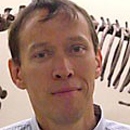Academic Editors
The following people constitute the Editorial Board of Academic Editors for PeerJ. These active academics are the Editors who seek peer reviewers, evaluate their responses, and make editorial decisions on each submission to the journal. Learn more about becoming an Editor.

Douglas S Domingues
I am an Assistant Professor in Plant Molecular Genetics at the "Luiz de Queiroz" College of Agriculture, University of São Paulo, Brazil. My main interests are devoted to understanding gene and genome evolution in plants, working on genome-wide analyses, including transcriptional analyses of gene families relevant to plant metabolism, RNA-seq analyses in plants, as well as studies on non-coding RNAs and transposable elements.

Michael WR Holmes
Mike Holmes is an Associate Professor and Canada Research Chair in Neuromuscular Mechanics and Ergonomics at Brock University, St. Catharines, Ontario, Canada. Mike completed a Bachelor of Kinesiology (Honours) and a Master of Science (MSc. Biomechanics) from Memorial University. He obtained a PhD in Biomechanics from McMaster University and completed a one year post-doctoral fellowship at the University of Waterloo.
Combining neuroscience and biomechanics, his work aims to better understand how people become injured at work. The focus of his research program is to better understand work-related upper extremity disorders by identifying mechanisms of injury and pain related to the neuromuscular and biomechanical properties of muscles and ligaments. Using laboratory based techniques, including electromyography, motion capture, electrical stimulation, medical imaging and computer modelling, his fundamental approach leads to workplace applications and investigations.

Alfonso Valencia
Bioinformatician. Interested in biological networks, cancer biology, text mining, and personalised medicine.
ICREA professor. Director of the Life Sciences Department at Barcelona Supercomputing Center. Director of the Spanish Bioinformatics Institute (INB / ELIXIR-ES) and Executive Editor of Bioinformatics. Elected Fellow and President of the International Society for Comptuational Biology (ISCB). Member of EMBO.

Luca Testarelli
Professor Testarelli is Associate at the 1st Faculty of Medicine and Surgery of the University of Rome “La Sapienza” since 2006. Dentist in Dental Clinic of Policlinico Umberto I’s Hospital of Rome since 2011. He completed a Ph.D with the highest marks at the University of Rome “La Sapienza” (2004) and obtained a Specialization Diploma in Orthognathodontics, at the University of L’Aquila (2008). Professor Testarelli is a member of several scientific national and international associations, and a member of the editorial board for several dental scientific journals. He is also Professor of Dental Restorative, Endodontics in School of Dentistry in Sapienza University of Rome, Professor of Oral Care in School of Dental Hygienist in Sapienza University of Rome and Professor of PhD Dentistry in Sapienza University of Rome.

Celine Gallagher
Research Fellow and Clinical Nurse, Centre for Heart Rhythm Disorders, University of Adelaide. Specialising in novel models of care delivery and lifestyle and cardiovascular risk factor management to improve outcomes in cardiovascular disease.

Tomas Perez-Acle
Biologist, PhD in Biotechnology. Director of the Centro BASAL Ciencia & Vida. Head Researcher of the Computational Biology Lab (dLab) at Fundacion Ciencia & Vida, Santiago, Chile. Research Professor at Facultad de Ingeniería y Tecnología, Universidad San Sebastián.

J.g.m. Thewissen
Ingalls-Brown endowed Professor of Anatomy at Northeast Ohio Medical University. Author of 'The Walking Whales.' Associate Editor of PeerJ, the Zoological Journal of the Linnean Society and the Journal of the Palaeontological Society of India. Co-Editor of the 'Encyclopedia of Marine Mammals,' and 'The Bowhead Whale, Balaena mysticetus, Biology and Human Interactions.'

Petteri Muukkonen
Dr. Petteri Muukkonen is a senior lecturer in geoinformatics. He is a geographer, and specifically owns a strong background in biogeography and in geoinformatics. He has mainly studied various biogeography and forestry themes in the boreal forest environment. For example, Dr. Muukkonen has studied carbon sequestration and carbon cycle, biomass surveys and monitoring, spatial autocorrelation of soil characteristics, landscape fragmentation, habitat changes and remote sensing of forest landscape. Geoinformatics (GIS and remote sensing) has been present in some way in all of his research topics.

Oyelola A Adegboye
Dr. Oyelola Adegboye is a Principal Research Fellow and an Associate Professor of Biostatistics at the Menzies School of Health Research, Darwin, Australia. He has strong scholarly interests in biostatistics, spatial epidemiology, exposure science, neglected tropical diseases and global health.

Philip L Reno
I earned by Ph.D. in Biological Anthropology and Biomedical Sciences from Kent State University and then completed a postdoc in developmental biology at Stanford University. I am currently an Professor of Anatomy and Embryology in the department of Bio-Medical Sciences at PCOM. My research focus is uncovering developmental mechanisms underlying human specific traits.

Bruce S Lieberman
Dr. Bruce Lieberman is a paleontologist and evolutionary biologist interested in macroevolution and the evolutionary history of invertebrates.


